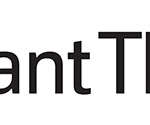In a Supreme Court judgment with potentially profound implications on the future of the gig economy, it was held that Uber drivers are workers entitled to full employment rights.
The Supreme Court unanimously ruled on Friday (19 February) that under the Employment Rights Act 1996, Uber drivers are full employees and therefore in line to receive the national minimum wage, annual leave entitlements and other legal protections afforded to workers.
Uber had argued that its Dutch-based arm, Uber BV, which owns the technology behind the app, simply used its Uber London subsidiary as a booking agent for drivers – which it contended were self-employed. The court emphatically rejected that argument, ruling instead that Uber London contracts with passengers, and then engages drivers to carry out bookings.
Bates Wells partner Paul Jennings spearheaded the efforts advising the original claimants, former Uber drivers Yaseen Aslam and James Farrar, enlisting Cloisters’ Jason Galbraith-Marten QC and Sheryn Omeri. Leigh Day partner Nigel Mackay represented fellow ex-Uber driver Robert Dawson, instructing Old Square Chambers’ Oliver Segal QC and Melanie Tether. Uber was advised by DLA Piper, which instructed Blackstone Chambers’ Dinah Rose QC and Fraser Campbell.
Commenting on the case, Constantine Law partner Alan Lewis estimated the ruling would cost Uber around £100m, and ‘will have huge implications for the rights of what we estimate to be more than five million UK gig economy workers.’
He questioned: ‘Who controls what goes on? Who takes the financial risk? Who supplies the equipment required to perform the tasks? Is there an unfettered right for the individual to appoint a substitute to carry out the work?’
Katie Maguire, employment partner at Devonshires, similarly argued the decision would have ‘huge implications’. She said: ‘It will help improve the lives of around five million people who work within the UK gig economy by granting them workers’ rights.’
However Paul McGrath, employment partner at McDermott Will & Emery, struck a more cautious tone: ‘It is important to note that the Supreme Court’s decision doesn’t automatically mean that all individuals engaged in the gig-economy are workers. Any future cases will continue to be decided on their own individual facts.’
When asked by Legal Business how wide the implications of the judgment would be, Bates Wells’ Jennings said: ‘The truth is somewhere in the middle. The initial impact will be on the drivers and Uber. What we are seeing after the judgment is a groundswell of drivers getting together and bringing class-action claims, and those are well-founded. The judgment is looking at the purpose of employment statutes, but it also goes to the fundamentals of Uber’s business model.’
An Uber statement released soon after the ruling asserted that the judgment ‘focused on a small number of drivers who used the Uber app in 2016’, however Jennings described this as ‘damage limitation’.
He added: ‘Every gig employer has a different set-up but the decision is far reaching. The specifics of the contracts are no longer the end point, it’s all about the relationship that is had with the employer. Big gig employers will find this has an impact.’
Another key aspect of the ruling stated that drivers are to be considered workers from the time they log onto the Uber app, until they log off. Jennings said: ‘This particular element of the judgment was worse than Uber anticipated. Until now, drivers would log onto the app and then remain idle in large pool before accepting jobs. Uber will now have to pay for that time.’












